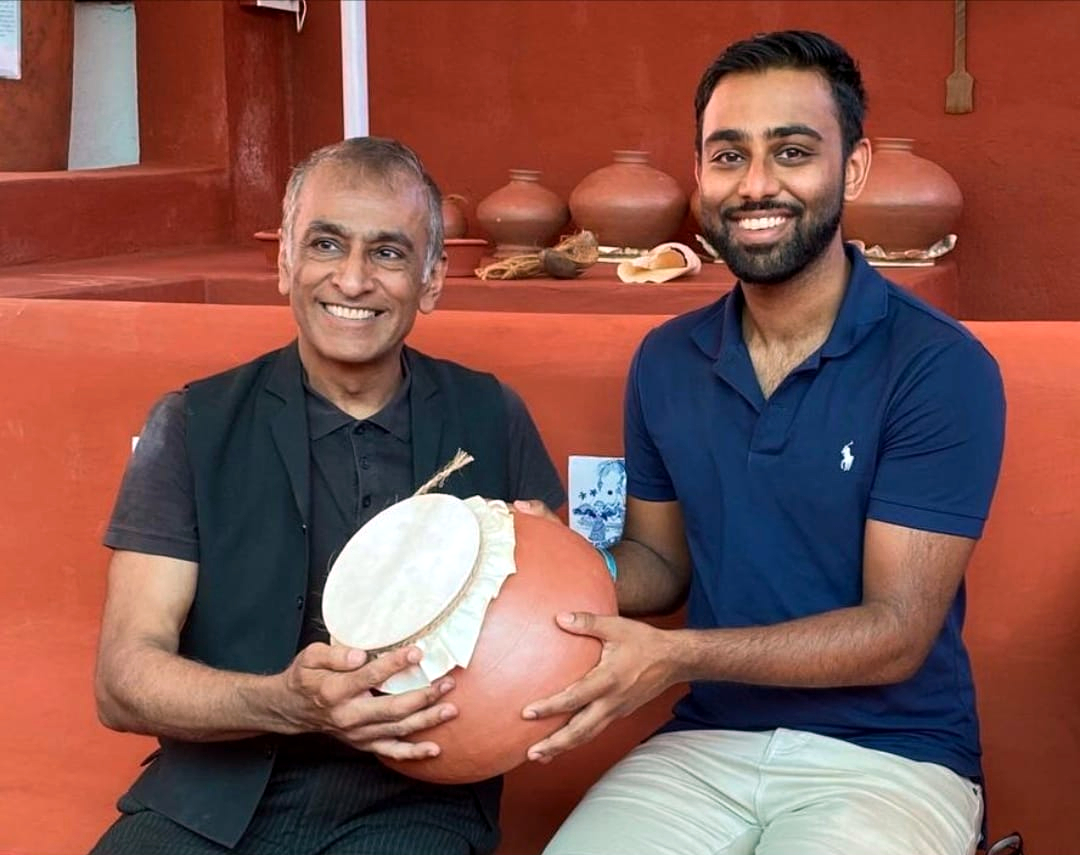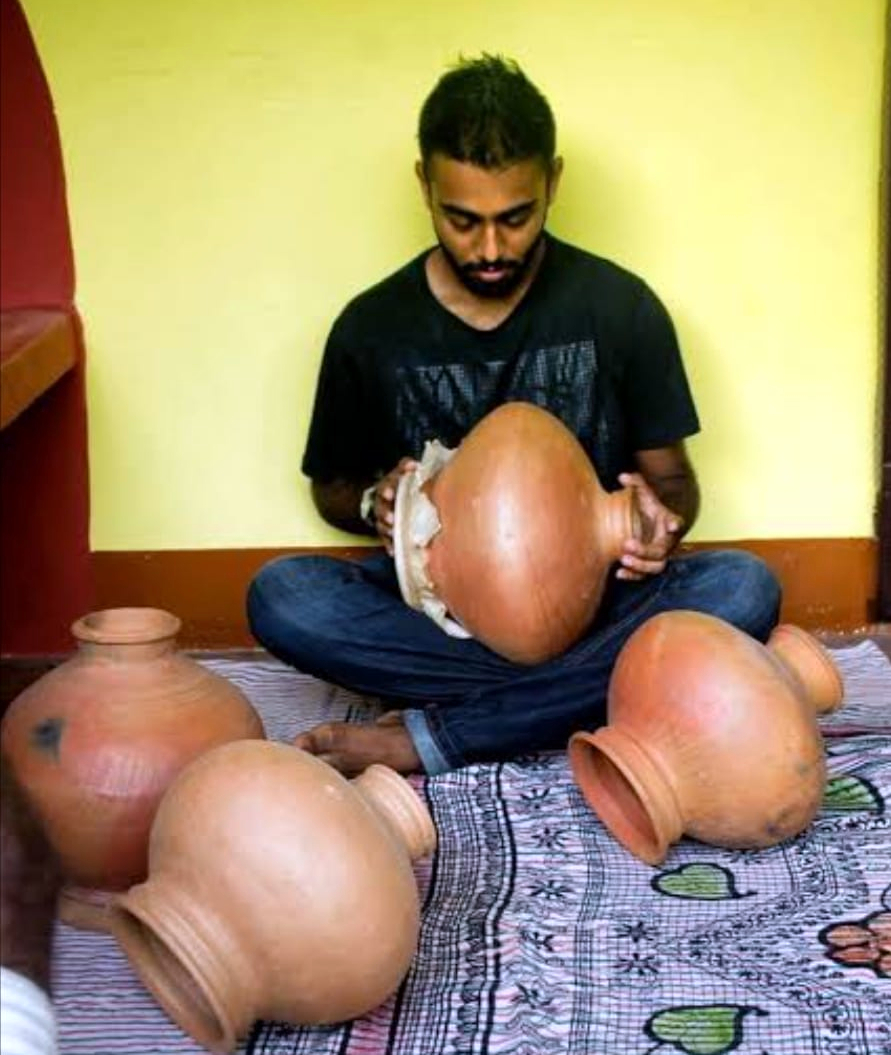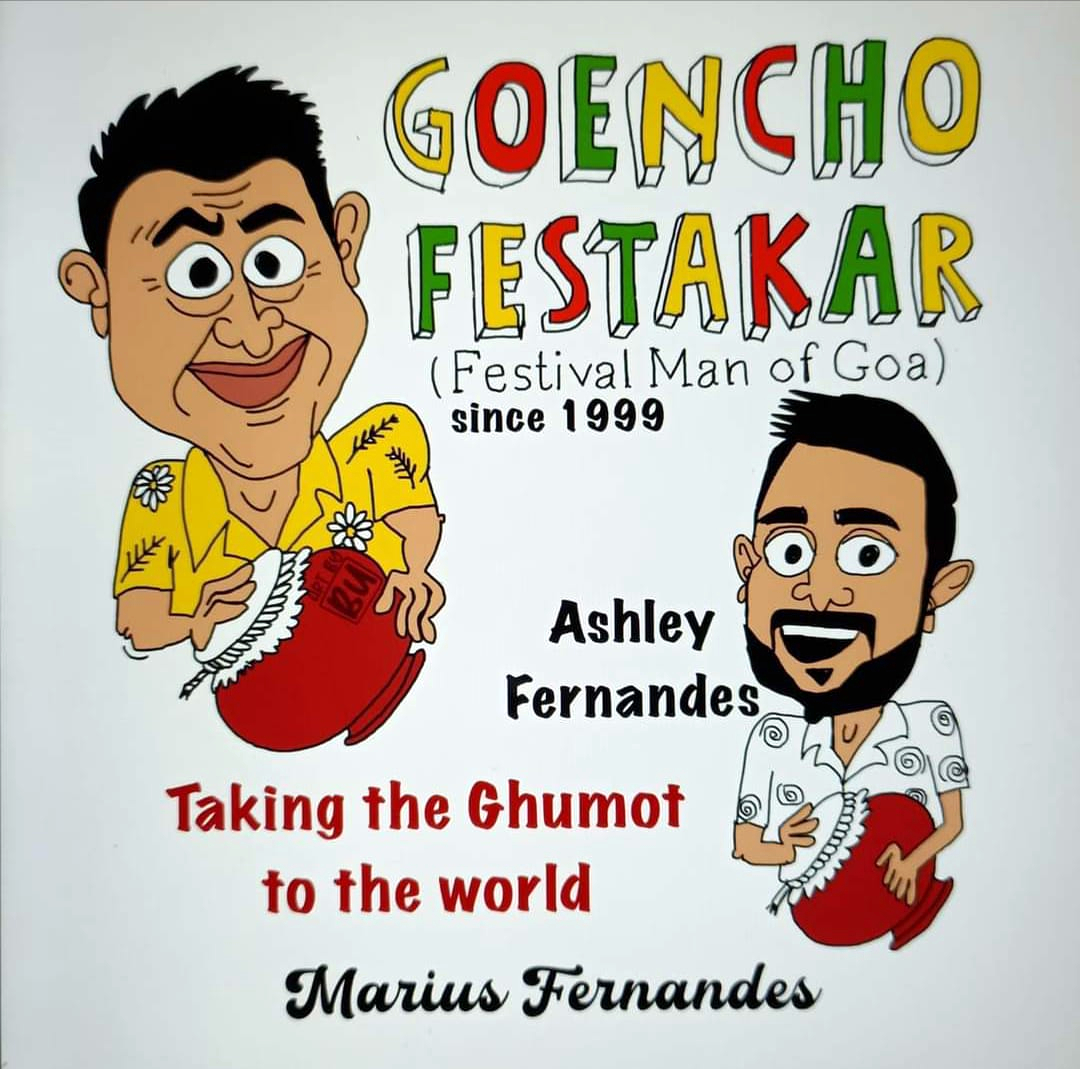
Ashley Fernandes gifting a Ghumot to Kuljit Bhamra, a pioneer of the Bhangra music, in Sao Mathias, Divar.
LONDON
A Goan youth in the UK who had conducted research on the ‘Ghumot’ at the Middlesex University in London about 10 years ago, eagerly anticipates the Geographical Indication (GI) tag for Goa’s much-loved instrument sometime soon.
Ashley Fernandes, a qualified audio engineer from the School of Audio Engineering at the Middlesex University and presently an employee with a leading tech company, said his decision to focus on the Ghumot as part of his research was deeply personal, stemming from a decade spent in Goa from the age of 10.
“This period of immersion in Goan culture, where the Ghumot's rhythmic presence was a constant at community gatherings, instilled in me a profound appreciation for the instrument,” said Ashley, who also happens to be the son of Goa’s Festakar Marius Fernandes.
“It symbolised the rich tapestry of Goan heritage, making it an ideal subject for my university research project. The Ghumot's potential recognition as a heritage instrument further motivated me to explore its cultural significance and the challenges it faces in the modern world.”
When asked how he went about his research, Ashley said his research journey was comprehensive, involving both an extensive review of literature and immersive fieldwork in Goa.

Ashley Fernandes along with some Ghumots in Sao Mathias, Divar.
“I engaged with a wide range of individuals, including environmentalists, cultural folklorists, potters, and historians, to gain a holistic understanding of the Ghumot's role in Goan society. This approach allowed me to document the instrument's construction, its application in traditional settings, and the perspectives of the local community on its preservation and evolution,” said Ashley.
Ashley informed that one key finding from his research was the identification of Deccani sheep skin as a sustainable alternative to monitor lizard skin for the Ghumot, addressing conservation concerns and the ethical implications of using the endangered monitor lizard skin, which is a protected species.
“Additionally, the research highlighted the Ghumot's role as a unifying cultural force across Goan communities and its potential for fostering social cohesion and cultural continuity.”
Ashley said his study also revealed significant gaps in the formal education and broader inclusion of the Ghumot in contemporary music.
“The absence of structured educational courses for the Ghumot limits opportunities for aspiring musicians to learn and master the instrument. Moreover, the need for Goan musicians to incorporate the Ghumot into recorded and live music is crucial for its popularisation and preservation.”
“By integrating the Ghumot into a variety of musical genres, musicians can showcase its versatility and contribute to the evolution of Goan music.”
Ashley now eagerly anticipates the GI tag for the Ghumot.
“Ongoing efforts to secure a GI tag for the Ghumot underscore its cultural importance and the community's commitment to its preservation. My research not only contributes to the academic understanding of the Ghumot but also serves as a call to action for its active preservation and celebration,” said Ashley.
“Establishing formal educational pathways and encouraging the Ghumot's inclusion in modern musical expressions are essential steps towards ensuring the instrument's vibrancy for future generations.”

Goa’s Festakar Marius Fernandes said he was proud of his son’s research on the Ghumot at Middlesex University.
“In 2017, we organised the first ‘World Ghumot Fest’ in Siridao. Our proposal was accepted by the Goa government and the Ghumot was declared the state musical heritage instrument of Goa in 2019.”
“Now in 2024, it is on the verge of getting a GI tag. This will be a big moment for Goa, the Ghumot, and all those who worked hard to preserve, perform and promote Goa’s much-loved instrument,” said Marius.